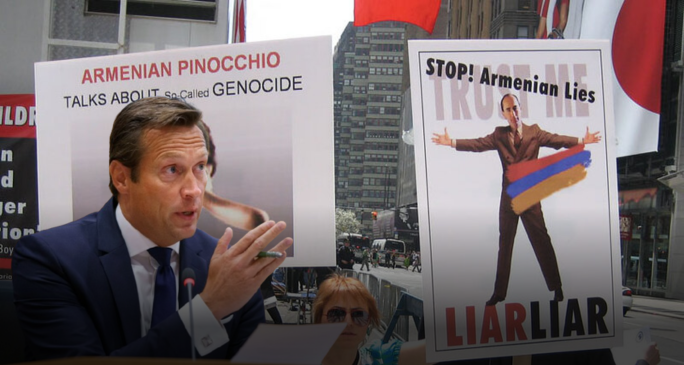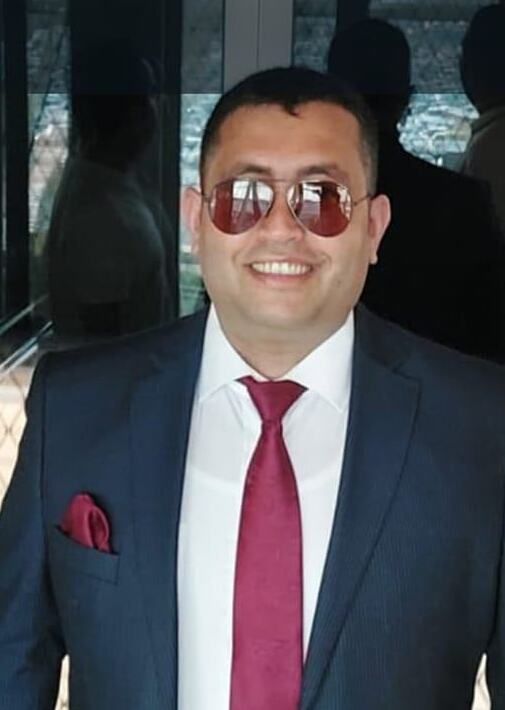Truth or tantrum: Political theater behind Armenian genocide claims

In academic theory, there exists a notion that contentious arguments—whether in everyday life or high-stakes politics—serve one of two primary purposes: either to expose the truth or to provoke disruption. The former, of course, demands a scaffold of solid logic and profound evidence. It is this rigor, this fidelity to fact, that forms the backbone of any claim seeking to stand tall in the arena of truth.
The latter, by contrast, is often the last refuge of those whose voice has grown hoarse and whose influence has waned—a desperate lunge rather than a calculated move. It resembles the erratic gestures of a player long ejected from the game, still shouting from the sidelines in hopes of stirring the dust.
We see this in those who cling to worn-out narratives about the Azerbaijan-Armenia conflict, spinning empty rhetoric about a matter that has not only lost its immediacy but has, in essence, already been resolved. These voices echo not with authority, but with the hollow clang of irrelevance—a cacophony from those whose time on the stage has passed, but who still mistake noise for significance.
The remarks made by Michel De Maegd, a Belgian politician, in an interview with Armenian media, reveal not a lack of respect for Türkiye and Azerbaijan, but rather for Armenia itself. It is obvious that he tried to curry favor with Armenian lobbies, yet he disregarded Armenians to such an extent that he had not even bothered to investigate the issue before speaking.
In saying, “110 years ago, an entire people were destroyed by the Ottoman Empire simply because of their identity—a people who had lived for millennia in the mountains of the Caucasus, a people who bear a unique culture, faith, and heritage,” Michel De Maegd blurs present-day realities with historical events from 110 years ago. The Ottoman Empire did not rule over the Caucasus at that time, and the clashes between Armenians and the Ottomans primarily occurred in Anatolia, resulting in the forced resettlement of Armenians from Eastern Anatolia to the Arabian Peninsula. So, nobody touched the Armenians in the South Caucasus. On the contrary, at that time, Armenians committed massacres against local people regardless of their origins.
Going further, the Belgian politician's call for the world to recognize the so-called 'Armenian Genocide' revealed what was in the hearts of many, including Turks. Yes, everyone wants the truth about what happened 110 years ago to be clarified and assessed objectively. To put some flesh on the bone, the Armenian side claims that the Ottoman Empire slaughtered 1.5 million Armenians — a claim the Turkish side firmly rejects. According to the Turkish perspective, members of the Armenian community in Eastern Anatolia collaborated with Russia during World War I, prompting the Ottoman government to relocate its Armenian citizens to the Arabian Peninsula. Many, they say, died en route due to harsh conditions. This raises important questions: Was it genocide? If so, why does the Armenian side not recognize similar tragedies as genocide?
For example, when Russia invaded the Crimean Peninsula, Catherine the Great forcibly relocated the entire Armenian community living there to Rostov-on-Don during a harsh winter. Roughly half of the population perished along the way. It’s a similar scenario—yet has anyone ever heard of an Armenian Genocide committed by Russia? Of course not.
Some may argue that it happened 250 years ago and is therefore not relevant or comparable. But what about similar tragedies that occurred during World War II? For example, when Nazi Germany attacked the USSR, the Kremlin relocated dozens of ethnic groups to Siberia and Central Asia. The Meskhetians were among them. Fearing possible collaboration with Türkiye, which did not even participate in the war, Moscow deported entire communities to Uzbekistan. Hundreds died en route, and many perished in camps due to harsh conditions. All the homes uprooted from the Meskhetians were handed over to Armenians, and to this day, Armenians continue to live in those houses. Have you ever heard of Armenia recognizing — or even intending to recognize — a 'Meskhetian Genocide'? Has anyone heard of Armenians expressing regret for occupying houses built by others, or making any effort to return them?
Helenendorf (now Goygol) in Azerbaijan and Katherinenfeld (now Bolnisi) in Georgia were established by German settlers. These German communities lived in the region until the outbreak of World War II. Like the Meskhetians, the entire German population of the South Caucasus was expelled to Central Asia. Needless to say, hundreds perished en route and in the camps due to harsh conditions. Has Armenia ever recognized this as genocide?
The list can be expanded to include Chechens, Crimean Tatars, and others. The tragedy that befell the Armenian community in the Ottoman Empire also befell many other nations. If Armenia calls it 'genocide,' then why does it not recognize the others as such? Or do Armenians believe they are somehow more equal than others?
Armenians should not forget one important point: No one will respect them unless they respect themselves. Respecting themselves does not mean accusing their neighbors of something or demanding anything from them by spreading false stories or trying to manipulate common opinion. Respecting themselves means having integrity, doing what they believe is right, and setting an example for others. For example, they should start recognizing all similar tragedies as genocides, regardless of who it may upset. Otherwise, many, like Michel De Maegd, will continue to make fools of Armenians, exploiting their lobbies and money. And at the end of the day, they will once again wail and complain that someone took advantage of them.
Here we are to serve you with news right now. It does not cost much, but worth your attention.
Choose to support open, independent, quality journalism and subscribe on a monthly basis.
By subscribing to our online newspaper, you can have full digital access to all news, analysis, and much more.
You can also follow AzerNEWS on Twitter @AzerNewsAz or Facebook @AzerNewsNewspaper
Thank you!

